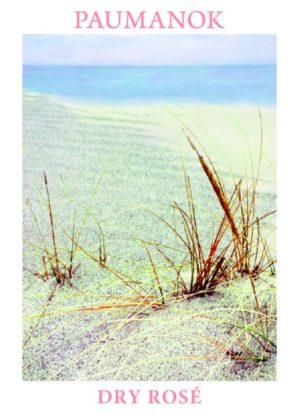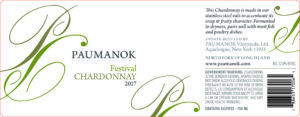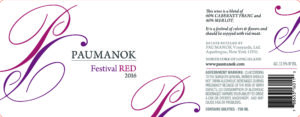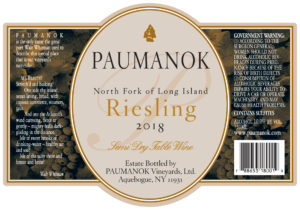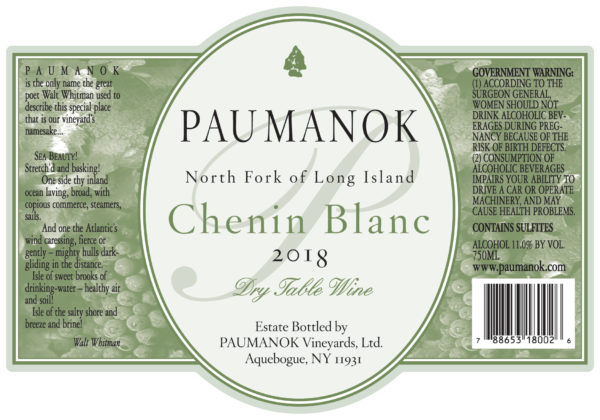
Chenin Blanc
| Country | USA |
|---|---|
| Region | Long Island |
| Producer | Paumanok |
| Size | 750mL |
| Style | White |
| Practices | Sustainable |
| Grapes | Chenin Blanc |
| Other Features | Screw Cap |
100% Chenin Blanc. Fresh, crisp, racy, and bracing. Redolent of grapefruit with more subtle notes of pineapple, melon, apple and guava. Slightly off-dry, light to medium-bodied with a medium length finish.
2023 vintage – Winemaker notes
After the mildest winter in memory, April of 2023 was quite warm resulting in a relatively early bud break in the second half of the month. May cooled off and we were lucky to emerge unscathed from the frost that hit the Finger Lakes region in mid May. 2023 was the year El Niño returned and it brought plenty of moisture. Lots of humidity in June and July, along with occasional rains and then more rain in September and October. In between, there was plenty of heat, indeed it was one of our hottest vintages. In the end there was enough sun and heat to fully ripen the crop to produce the quality wines we aim for.
In the vineyard, an intensive regimen of leaf removal (to better expose the fruit to the sun and wind) was done. Performing thorough leaf removal early in the growing season (during or immediately after fruit set) aids greatly in attaining the goal of growing healthy, ripe, clean fruit. The fruit is healthier thanks to the drier microclimate created within the canopy. Pathogens such as powdery mildew are susceptible to UV light which will kill their spores.
pH: 3.32
Total acidity: 8.1 g/l
Harvest Date: September 22, 2023
Brix at Harvest: 20.6
Residual Sugar: 1.0%
Bottling Date: December 14, 2023
Release Date: February 1, 2024
Production: 1113 cases
About the Producer
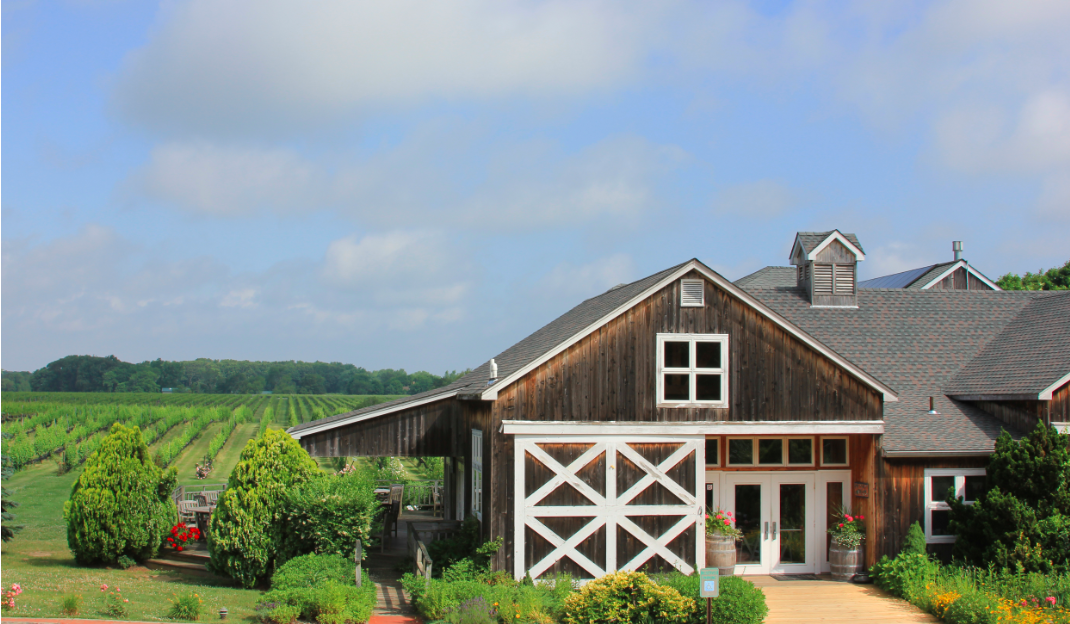
Founded in 1983 by the Massoud family, Paumanok Vineyards is the 2nd oldest winery on Long Island – and the oldest winery on Long Island still owned and run by its founder’s family. Established by Charles Massoud, a native of Lebanon, and his wife Ursula, a native of the Pfalz, Germany – and member of a winemaking/grape growing family – the estate is now run by their sons. Their eldest son, Kareem, is the winemaker; their son Nabeel is the viticulturalist, and their son Salim runs their administrative functions. The estate takes its name from an Algonquian name for Long Island, which was famously referenced by Walt Whitman in his poem “Starting from Paumanok”, published in Leaves of Grass.
Their 127-acre estate property is planted with 32 ha of Chardonnay, Riesling, Sauvignon Blanc, Chenin Blanc, Merlot, Cabernet Sauvignon, Cabernet Franc, Petit Verdot, Malbec, Pinot Noir, and Melon de Bourgogne – densely plated at 1,100-1,400 vines per acre to produce more concentrated fruit and higher quality wines. Their wines are only made with estate fruit and production is limited to under 12,000 cases.
Their terroir is defined by the North Fork’s maritime climate and sandy, loamy topsoil and gravelly subsoil with excellent drainage, similar to Premiers Cru Bordeaux sites. In winter, Long Island Sound and Peconic Bay, which surround the estate, act as giant heat sinks and insulate the vineyards from extreme low temperatures. In summer, they moderate the heat experienced in the city and inland. At harvest, Paumanok often experiences a long Indian summer due to the maritime climate. Sustainable farming and careful canopy management allow the terroir to express itself in their delicately crafted wines. Kareem’s winemaking approach is meticulous and low-intervention, with minimal use of sulfur dioxide.
Paumanok is certified sustainable by Long Island Sustainable Winegrowing (LISW). LISW is the first organization of its kind on the East Coast – modeled after similar organizations on the West Coast, like Oregon LIVE and Lodi Rules. Since 2017, the winery is 100% solar powered by their own solar panels.
Paumanok
New York Wines, Wineries, Wine Making History of New York - Charles Massoud
Click here for Kareem Massoud's interview, "Vineyard Chat" with Jeff Harding

related products
-
Paumanok
Dry Rose
-
Paumanok
Chardonnay – Festival
-
Paumanok
Red Blend – Festival
-
Paumanok
Riesling – Semi-Dry

